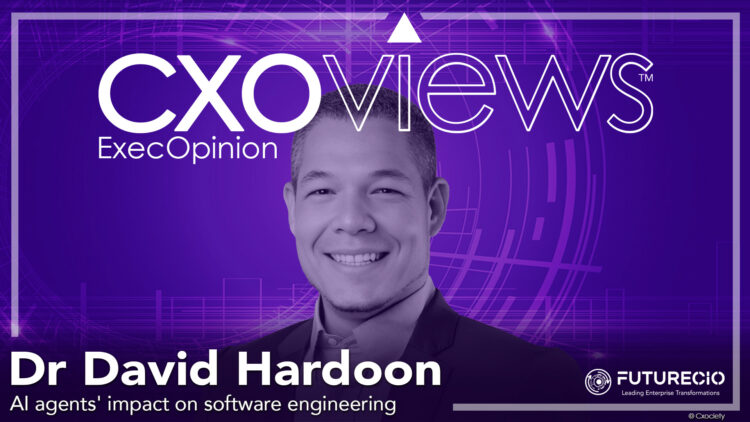By 2025, AI agents will have moved from experimental tools to indispensable partners in the software engineering lifecycle. Unlike earlier code assistants, today's AI agents are autonomous, goal-driven entities capable of handling complex workflows, making decisions, and learning from interactions.
On a LinkedIn post, Prof Dr Daniel Russo of the Department of Computer Science, Aalborg University, writes: “AI agents will turn software development into a high-level collaboration where engineers define goals and AI delivers actionable solutions.”
For banks and financial institutions in Asia, this transformation is not just about efficiency—it's about redefining how technology teams innovate, deliver, and secure digital financial services in a hyper-competitive landscape.
In particular, the integration of AI agents into software engineering within Asian banks and financial institutions is not just accelerating innovation—it is fundamentally redefining the discipline.
The new software engineering reality in Asian banking
For years, software engineering in banks was perceived as a standardised, back-office function, primarily tasked with maintaining legacy systems. Dr David Hardoon, global head of AI enablement at Standard Chartered, posits that AI has upended this paradigm.
"AI is shifting this dynamic. Now, the thoughtful design of reliable, scalable systems is crucial in determining whether AI drives meaningful business impact or remains a costly exploration," he elaborated.
The interdisciplinary imperative
Success in AI-driven banking now hinges on a three-way collaboration that was unimaginable a few years ago:
- Data scientists develop models to predict fraud or assess sentiment from vast transaction streams.
- GenAI engineers fine-tune large language models to interpret regulatory language and customer intent.
- Data engineers build real-time data pipelines to feed these models with timely, relevant information.

"Consider a risk intelligence system that processes news sentiment to detect emerging market risks. Data scientists develop sentiment analysis models," begins Dr Hardoon. "GenAI engineers adapt large language models to understand financial terminology and regulatory context. Data engineers build pipelines that ingest news feeds, social media, and regulatory filings in real-time."
But, as Dr Hardoon emphasises, the software engineering challenge is everything else: ensuring systems are responsive under load, building governance layers that track model decisions, integrating APIs with risk management systems, and implementing monitoring that detects model drift or failure.
High-stakes use cases
In the banking sector, engineering excellence is not merely a technical aspiration—it is a strategic imperative. As financial institutions in Asia and globally confront unprecedented complexity driven by AI, regulatory demands, and evolving customer expectations, the quality and rigour of software engineering directly influence banks' ability to innovate, compete, and maintain trust.
Dr Hardoon outlines three use cases where excellence in software engineering matters:
- Automated compliance: Software engineering ensures AI-powered compliance systems never miss a regulatory deadline, can explain decisions to auditors, and handle edge cases that models alone cannot anticipate.
- Real-time personalisation: Engineers deliver personalised banking experiences in milliseconds, maintaining privacy, handling millions of users, and ensuring graceful degradation if AI components fail.
- Dynamic risk assessment: Software engineering enables real-time, AI-driven risk insights to be made actionable for trading and lending, ensuring reliability and auditability.
Striving for excellence means building resilient, secure, and scalable systems that can adapt rapidly to market changes while ensuring compliance and operational stability. It also involves cultivating a culture where engineering teams continuously improve, embrace emerging technologies such as AI-powered development tools, and collaborate effectively across disciplines.
This commitment to engineering excellence enables banks to reduce technical debt, accelerate digital transformation, and unlock new value streams—all of which are critical in an industry where agility and reliability are paramount.
From support function to strategic enabler
AI has inverted the traditional hierarchy: while data science creates new possibilities, it is software engineering that determines what is deployable and sustainable. The banks leading in AI are those whose engineering teams can rapidly and reliably operationalise experimental AI capabilities.
But Dr Hardoon cautions: "The banks winning in AI are not necessarily those with the best models - they're the ones whose software engineering teams can take experimental AI capabilities and make them production-ready fastest."
At Standard Chartered, this is underpinned by a deliberate upskilling agenda, ensuring people, process, and technology are aligned for effective AI implementation.
"This requires a new breed of software engineering that understands probabilistic systems, can build robust pipelines for model inference, and can architect systems that remain reliable even when AI components behave unpredictably," elaborates Dr Hardoon.
Despite the availability of tools, he cautions that the fundamental challenge remains deeply technical: building systems that bridge the gap between experimental AI and production banking requirements.
This is where the governance layer becomes particularly crucial, opines Dr Hardoon. "We have established, at the Bank, enhanced governance for novel areas, such as the Digital Asset Risk Committee and the Responsible AI Council.
"Data scientists and GenAI engineers can then create capabilities that can make decisions, while software engineers build the systems that can explain those decisions, track their accuracy over time, and provide the audit trails that regulators demand," he continues.
The renaissance of systems thinking
AI's complexity has revitalised software engineering, demanding rigorous systems design and governance. At Standard Chartered, enhanced governance structures—such as the Digital Asset Risk Committee and Responsible AI Council—ensure that AI decisions are explainable, accurate, and auditable, meeting both business and regulatory demands.
"For an AI project to succeed, data scientists, GenAI engineers, data engineers, and software engineers must collaborate closely, each contributing essential expertise," comments Dr Hardoon.
He believes no single role can deliver a complete solution alone, explaining that in AI, a data scientist may develop an exceptional model, but without a software engineer to deploy it effectively, the effort is wasted. "Successful outcomes require integrated teamwork from the outset," he commits.
Software engineering practices in Asia, 2025
Elevation, not displacement
AI is elevating, not replacing, the field of software engineering. GenAI has clarified the enduring value of architectural thinking and engineering rigour—skills that become more critical as intelligent tools proliferate.
New hybrid roles are emerging, with software engineers, GenAI engineers, and context engineers collaborating in ways that foster shared technical ownership and communication.
- Low-code platforms (e.g., n8n) are used for rapid prototyping, but robust, production systems still require custom engineering, often with the assistance of AI.
- Disciplined governance is non-negotiable. The temptation for "vibe coding"—assuming AI makes rigour optional—is actively countered by lessons from early failures. Sustainable AI impact requires governance frameworks from day one.
Where AI delivers immediate value
- Code Generation & Acceleration: Tools like GitHub Copilot and Claude Code handle routine coding tasks, freeing engineers to focus on more complex challenges. However, core disciplines—testing, observability, security—remain essential.
- Rapid Prototyping: AI-powered platforms enable teams to validate ideas quickly, saving time and resources by identifying dead ends early.
- Enhanced Collaboration: AI-powered workflows are breaking down silos, enabling engineers and data scientists to work seamlessly together and translate AI potential into robust, governed systems.
"As a skills-focused Bank, we sustainably attract, grow and retain the relevant skills and talent, while investing in future-focused technical and human skills that grow our business and sustain careers amid AI's disruption." Dr David Hardoon
The human factor: Upskilling and cultural change
Standard Chartered's AI Learning Hub exemplifies the sector's commitment to upskilling its workforce. As AI tools become more powerful, core engineering disciplines—such as design, testing, security, and governance—become increasingly vital.
Cross-functional teams, where engineers, data scientists, and machine learning (ML) specialists collaborate from project inception, are now the norm.
"An effective strategy creates deeply integrated teams where engineers, data scientists, and ML specialists function as a single unit from project inception," says Dr Hardoon. "This cross-functional fluency enables engineers to orchestrate responsible AI delivery rather than simply code solutions."
Every engineer's role is evolving to include AI literacy and responsible implementation as core competencies. "Upskilling engineers, specifically, for AI collaboration requires a paradoxical approach: as AI tools become more powerful, core software engineering disciplines - design, testing, security, and governance - become more critical, not less," elaborates Dr Hardoon.
Stakeholder expectations are rising as AI accelerates prototyping, and delivery timelines are compressed. Engineers must balance speed with the discipline of production-grade development, ensuring that robustness and security are never sacrificed for velocity.
Amplifying, not replacing
AI agents are not replacing software engineers in Asia's banks—they are amplifying their impact. The most successful institutions are those that combine rigorous engineering, robust governance, and a culture of continuous learning and improvement.
As Dr Hardoon notes, "AI amplifies engineering capabilities most effectively when it is built on solid architectural foundations and clear business alignment. Speed and quality are not trade-offs in this context—they are mutually reinforcing when approached systematically."
Banks like Standard Chartered, with their focus on upskilling, governance, and interdisciplinary collaboration, are setting the standard for responsible, impactful AI adoption in financial services.




